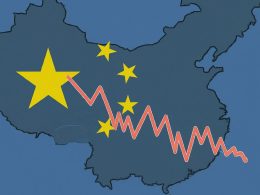The Supreme Court of the United States holds a significant role in interpreting the Constitution democracy and shaping the legal landscape of the nation. However, recent decisions and trends have sparked a debate about whether the Court is undermining the democratic principles upon which the United States was founded. This article explores various perspectives on this issue, presenting an in-depth analysis and comparative study of key cases and trends.
Historical Context of the Supreme Court’s Role

The Supreme Court was established under Article III of the Constitution to serve as the highest judicial authority in the United States. Its primary functions include interpreting the Constitution, resolving disputes between states, and ensuring the law is applied uniformly across the country. Historically, the Court has played a pivotal role in major societal changes, such as desegregation in Brown v. Board of Education and the recognition of same-sex marriage in Obergefell v. Hodges.
Recent Trends and Decisions
Citizens United v. Federal Election Commission (2010)
One of the most controversial decisions in recent history is Citizens United v. Federal Election Commission. The Court ruled that corporate funding of independent political broadcasts in candidate elections cannot be limited under the First Amendment. Critics argue that this decision has allowed for an influx of money into politics, giving disproportionate influence to wealthy individuals and corporations.
Shelby County v. Holder (2013)
In Shelby County v. Holder, the Supreme Court invalidated key provisions of the Voting Rights Act of 1965, which required certain states and local governments to obtain federal preclearance before implementing changes to their voting laws. This decision has led to concerns about voter suppression and the erosion of protections against discriminatory practices in elections.
Janus v. AFSCME (2018)
The Janus v. AFSCME decision ruled that non-union public sector employees cannot be compelled to pay union dues, which significantly impacts the financial strength of unions. This ruling has been seen as weakening collective bargaining rights and diminishing the political power of labor unions, which traditionally support Democratic candidates and causes.
Impact on Democratic Principles
Representation and Equality
The aforementioned decisions have raised significant concerns about representation and equality in the democratic process. By allowing unlimited corporate spending in elections and dismantling key provisions of the Voting Rights Act, the Supreme Court is perceived to be facilitating an environment where the voices of ordinary citizens are overshadowed by wealthy interests.
Judicial Activism vs. Judicial Restraint
The debate between judicial activism and judicial restraint is central to understanding the Court’s impact on democracy. Judicial activism refers to judicial rulings suspected of being based on personal or political considerations rather than existing law. Critics argue that the current Supreme Court has exhibited judicial activism, particularly in its decisions that appear to align with conservative political agendas. Proponents of these rulings, however, argue that they are consistent with a strict interpretation of the Constitution.
Checks and Balances
The principle of checks and balances is fundamental to the US Constitution, designed to ensure that no single branch of government becomes too powerful. However, some recent Supreme Court decisions are viewed as undermining this principle by overstepping judicial authority and encroaching on legislative functions.
Analysis Table: Impact of Key Supreme Court Decisions
| Case Name | Year | Key Issue | Decision Summary | Democratic Impact |
|---|---|---|---|---|
| Citizens United v. FEC | 2010 | Campaign finance | Corporate funding for political broadcasts is protected by the First Amendment | Increased influence of money in politics, potential for unequal representation |
| Shelby County v. Holder | 2013 | Voting rights | Invalidated preclearance provisions of the Voting Rights Act | Increased risk of voter suppression and discriminatory voting practices |
| Janus v. AFSCME | 2018 | Union dues | Non-union public sector employees cannot be compelled to pay union dues | Weakened unions, reduced collective bargaining power |
Comparative Table: Democratic Principles vs. Recent Supreme Court Trends
| Democratic Principle | Traditional Interpretation | Recent Supreme Court Trend |
|---|---|---|
| Representation and Equality | Ensuring equal representation and voting rights for all citizens | Decisions favoring corporate interests and deregulating voting protections |
| Judicial Activism | Courts should interpret the law, not make law | Perceived increase in judicial activism aligning with political agendas |
| Checks and Balances | Maintaining a balance of power among branches of government | Decisions perceived as encroaching on legislative authority |
The Broader Implications
Public Trust in the Judiciary
Public trust in the judiciary is essential for the functioning of a democratic society. When the Supreme Court is perceived as biased or overly politicized, it undermines public confidence in the judicial system. This erosion of trust can lead to increased political polarization and a decrease in civic engagement.
The Role of Precedent
The principle of stare decisis, which means to stand by things decided, is a cornerstone of the judicial system. It ensures stability and predictability in the law. However, the Supreme Court’s willingness to overturn established precedents in recent years has raised questions about the stability of legal interpretations and the predictability of future rulings.
The Future of the Supreme Court
The future role of the Supreme Court in US democracy will depend on various factors, including the appointment of new justices, legislative responses to Court decisions, and the evolving political landscape. Potential reforms, such as expanding the number of justices or imposing term limits, have been proposed to address concerns about the Court’s influence and impartiality.
Conclusion
The Supreme Court’s recent decisions and trends have sparked significant debate about its role in undermining US democracy. While the Court is intended to be an impartial arbiter of the law, its rulings on campaign finance, voting rights, and labor unions have led to concerns about unequal representation, judicial activism, and the erosion of democratic principles. The impact of these decisions highlights the need for ongoing scrutiny and potential reforms to ensure that the Supreme Court remains a guardian of democracy and the rule of law.










